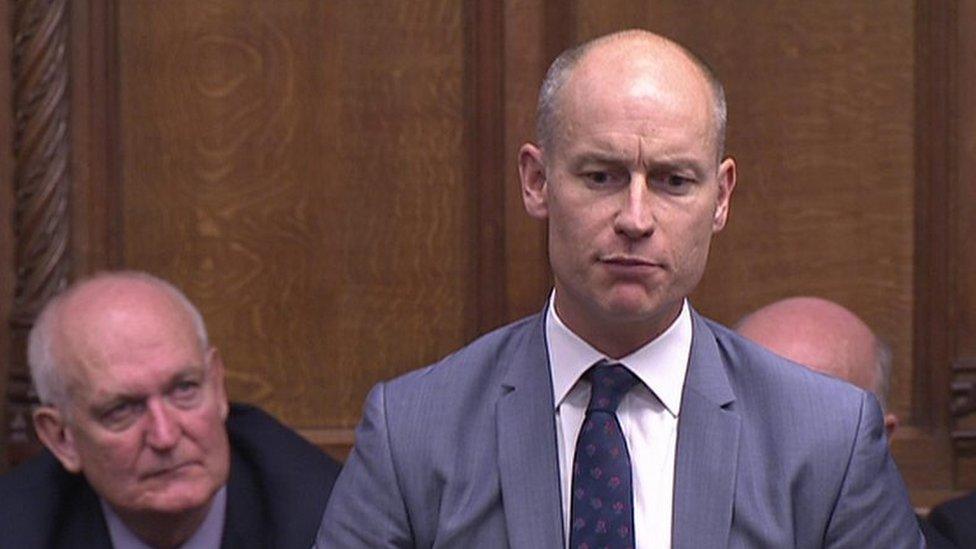Brexit: May 'confident' MPs will get vote before exit
- Published
- comments
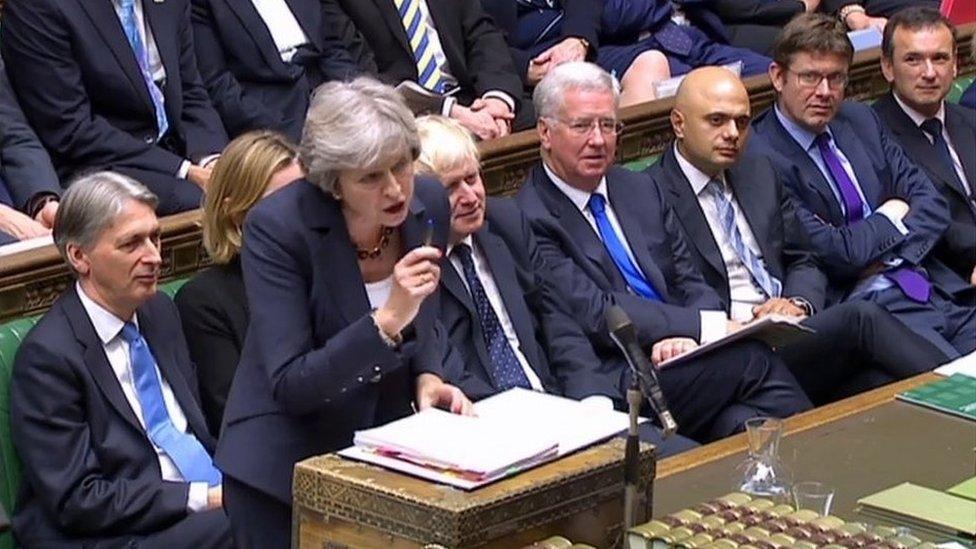
Theresa May has said she is confident there will be enough time for MPs to get a Brexit vote before the UK leaves.
During Prime Minister's Questions, she was pressed on comments by David Davis who earlier said a vote might not happen before the March 2019 deadline.
He said the vote's timing hinged on when a deal was done and this may be at the "59th minute of the 11th hour".
But Mrs May said she believed it would happen "in time for Parliament to have the vote we committed to".
The government agreed earlier this year to give Parliament a "meaningful" say on the outcome of the current negotiations but Downing Street has not said when it will be.
The Brexit secretary told a Commons committee it had always been the government's goal that the vote would take place before the European Parliament gave its own verdict, expected to be in late 2018 or early 2019.
But he said that "it can't come before we have the deal" and pressed on whether this might not happen before the end of March 2019, he replied "yes that's correct, in the event that we don't do the deal until then".
The comments have been seized on by Labour MPs one of whom - Stephen Kinnock - asked the PM how Parliament "could have a meaningful vote on something that has already taken place".
Mrs May said it was right that negotiations could continue right until the scheduled date of Brexit but suggested that it was in the interest of all parties to conclude them before then.
"It is not just this Parliament that wants to have a vote on that deal - there will be ratifications by other Parliaments," she said.
Stephen Kinnock asks PM to explain how it is possible to have a "meaningful vote on something that has already taken place"
"I am confident, because it is in the interests of both sides, that we will be able to achieve that agreement and negotiation in time for this Parliament to have the vote we committed to."
But Shadow Chancellor John McDonnell said ministers were making up policy "on the hoof on a daily basis" while Lib Dem spokesman Tom Brake said not to have a vote before Brexit would be "an insult to democracy".
Former Tory education secretary Nicky Morgan said it would be "completely pointless" to have a vote after the UK had left and was therefore pleased about the PM's reassurances.
"The danger of answering hypothetical questions as David Davis has done this morning is you end up in hotter water," she told the BBC's Daily Politics. "The sovereign Parliament has to have a final meaningful vote."
But former Conservative chancellor Ken Clarke said he was not concerned about there being a vote before Brexit as the UK would leave anyway under the terms of the Article 50 process, which he voted against.
He told the BBC there was no way a trade deal would be agreed by March 2019 and until that happened - and Parliament approved it - the UK would remain signed up to whatever transition deal came into force.
'High stress'
The government, Mr Davis told MPs, was aiming to conclude all its negotiations - including a future trade deal - by the time of its withdrawal and while this was perfectly feasible, it could be a close-run thing.
"It is no secret that the way the union makes its decisions tends to be at the 11th minute... 59th minute of the 11th hour of the 11th day and so on and that's precisely what I expect to happen here."
"It will be very high stress, very exciting for everyone watching, but that's what will happen. In technical terms, there is no reason why we can't do this in the time available... I am quite sure in my mind we can do this."
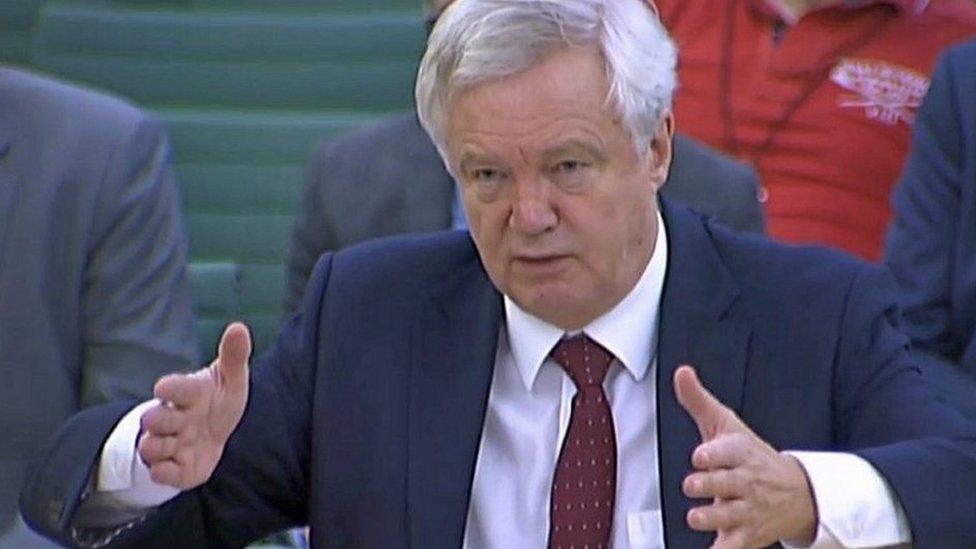
Mr Davis suggested the talks could go up to the wire
Under the terms of existing EU treaties, the UK would not be able to sign a trade deal with the EU until it becomes a "third party" and has left the EU.
Mr Davis said "technically" this was true, but that a deal could be signed almost immediately, or as he put it, "a nano second" afterwards.
The Department for Exiting the European Union released a statement afterwards clarifying Mr Davis's position, saying he had been asked about hypothetical scenarios and both the UK and EU hoped to finalise a deal by October 2018, giving time for Parliament to vote on it before the UK leaves.
On Monday, Mrs May suggested the two-year implementation period she was hoping for was dependent on details of the final "partnership" being clear at the time of exit.
This alarmed business groups, which warned earlier this week that the UK risks losing jobs and investment without an interim deal agreed much sooner.
Pressed on this during the hearing, Mr Davis said that by the first quarter of next year, it "should be pretty plain what we are trying to deliver" in terms of transition, which he said would look "much like" the status quo in terms of trade, migration and other arrangements.
However, he noted the EU had not yet drawn up their final negotiating guidelines on any transition and both sides needed to know what the UK's final destination would be before this was settled.
While the UK wanted a full trade deal, he said there was the possibility of what he described as a "bare bones" agreement where there were understandings in key areas but no over-arching agreement. An outcome where the two sides were unable to agree anything was "off the probability scale", he added.
- Published23 October 2017
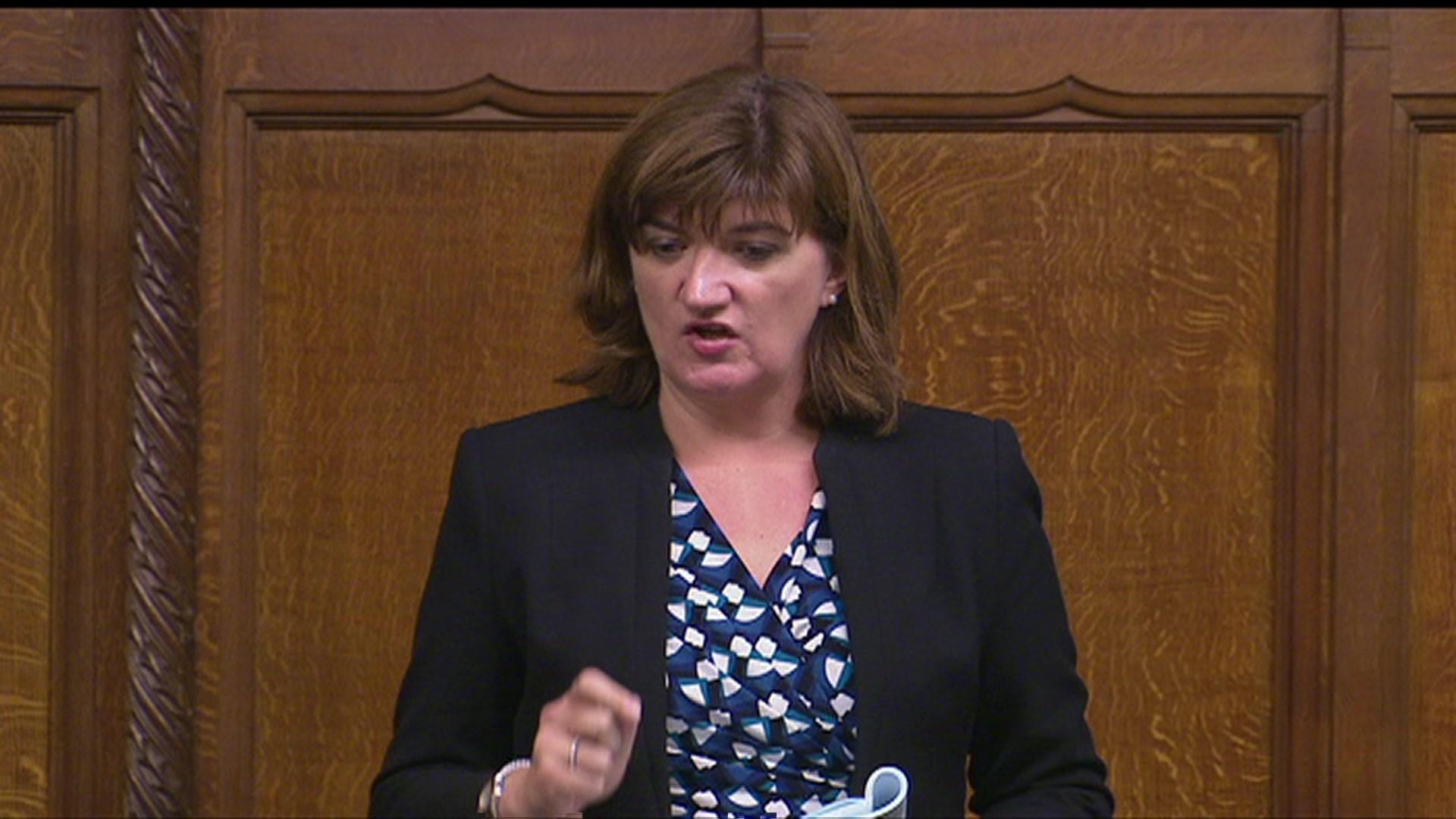
- Published24 October 2017
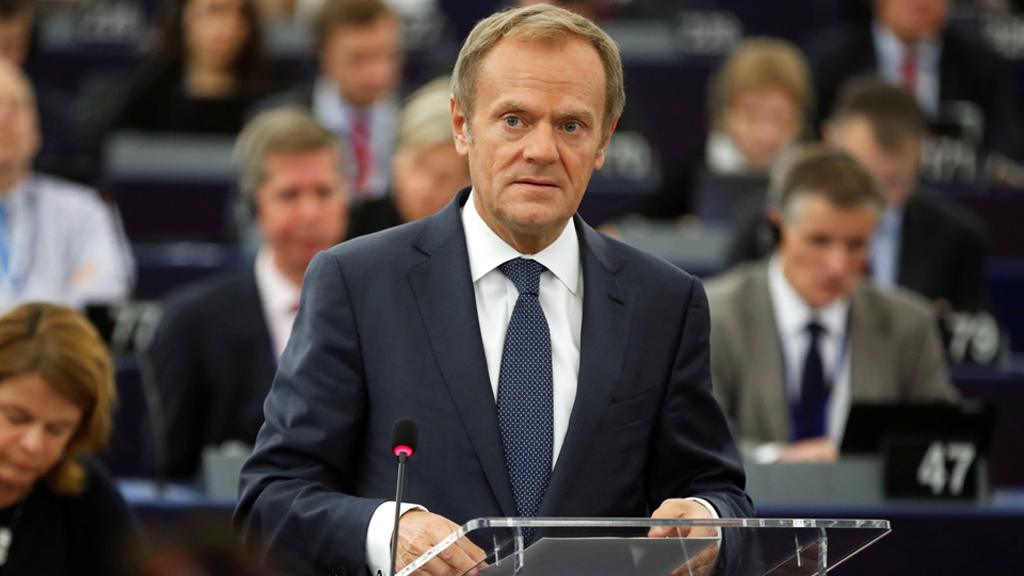
- Published25 October 2017
